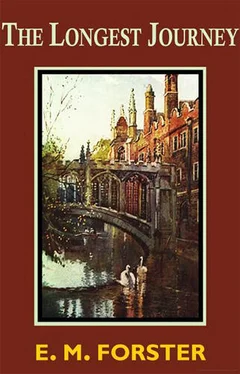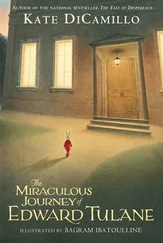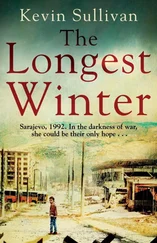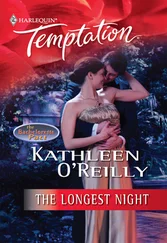Edward Forster - The Longest Journey
Здесь есть возможность читать онлайн «Edward Forster - The Longest Journey» весь текст электронной книги совершенно бесплатно (целиком полную версию без сокращений). В некоторых случаях можно слушать аудио, скачать через торрент в формате fb2 и присутствует краткое содержание. Жанр: Классическая проза, на английском языке. Описание произведения, (предисловие) а так же отзывы посетителей доступны на портале библиотеки ЛибКат.
- Название:The Longest Journey
- Автор:
- Жанр:
- Год:неизвестен
- ISBN:нет данных
- Рейтинг книги:5 / 5. Голосов: 1
-
Избранное:Добавить в избранное
- Отзывы:
-
Ваша оценка:
- 100
- 1
- 2
- 3
- 4
- 5
The Longest Journey: краткое содержание, описание и аннотация
Предлагаем к чтению аннотацию, описание, краткое содержание или предисловие (зависит от того, что написал сам автор книги «The Longest Journey»). Если вы не нашли необходимую информацию о книге — напишите в комментариях, мы постараемся отыскать её.
The Longest Journey — читать онлайн бесплатно полную книгу (весь текст) целиком
Ниже представлен текст книги, разбитый по страницам. Система сохранения места последней прочитанной страницы, позволяет с удобством читать онлайн бесплатно книгу «The Longest Journey», без необходимости каждый раз заново искать на чём Вы остановились. Поставьте закладку, и сможете в любой момент перейти на страницу, на которой закончили чтение.
Интервал:
Закладка:
"Does one generally exclude the other?" asked Rickie.
"Unselfish people, as a rule, are deathly dull. They have no colour. They think of other people because it is easier. They give money because they are too stupid or too idle to spend it properly on themselves. That was the beauty of your mother—she gave away, but she also spent on herself, or tried to."
The light faded out of the drawing-room, in spite of it being September and only half-past six. From her low chair Agnes could see the trees by the drive, black against a blackening sky. That drive was half a mile long, and she was praising its gravelled surface when Rickie called in a voice of alarm, "I say, when did our train arrive?"
"Four-six."
"I said so."
"It arrived at four-six on the time-table," said Mr. Wonham. "I want to know when it got to the station?"
"I tell you again it was punctual. I tell you I looked at my watch. I can do no more."
Agnes was amazed. Was Rickie mad? A minute ago and they were boring each other over dogs. What had happened?
"Now, now! Quarrelling already?" asked Mrs. Failing.
The footman, bringing a lamp, lit up two angry faces.
"He says—"
"He says—"
"He says we ran over a child."
"So you did. You ran over a child in the village at four-seven by my watch. Your train was late. You couldn't have got to the station till four-ten."
"I don't believe it. We had passed the village by four-seven. Agnes, hadn't we passed the village? It must have been an express that ran over the child."
"Now is it likely"—he appealed to the practical world—"is it likely that the company would run a stopping train and then an express three minutes after it?"
"A child—" said Rickie. "I can't believe that the train killed a child." He thought of their journey. They were alone in the carriage. As the train slackened speed he had caught her for a moment in his arms. The rain beat on the windows, but they were in heaven.
"You've got to believe it," said the other, and proceeded to "rub it in." His healthy, irritable face drew close to Rickie's. "Two children were kicking and screaming on the Roman crossing. Your train, being late, came down on them. One of them was pulled off the line, but the other was caught. How will you get out of that?"
"And how will you get out of it?" cried Mrs. Failing, turning the tables on him. "Where's the child now? What has happened to its soul? You must know, Agnes, that this young gentleman is a philosopher."
"Oh, drop all that," said Mr. Wonham, suddenly collapsing.
"Drop it? Where? On my nice carpet?"
"I hate philosophy," remarked Agnes, trying to turn the subject, for she saw that it made Rickie unhappy.
"So do I. But I daren't say so before Stephen. He despises us women."
"No, I don't," said the victim, swaying to and fro on the window-sill, whither he had retreated.
"Yes, he does. He won't even trouble to answer us. Stephen! Podge! Answer me. What has happened to the child's soul?"
He flung open the window and leant from them into the dusk. They heard him mutter something about a bridge.
"What did I tell you? He won't answer my question."
The delightful moment was approaching when the boy would lose his temper: she knew it by a certain tremor in his heels.
"There wants a bridge," he exploded. "A bridge instead of all this rotten talk and the level-crossing. It wouldn't break you to build a two-arch bridge. Then the child's soul, as you call it—well, nothing would have happened to the child at all."
A gust of night air entered, accompanied by rain. The flowers in the vases rustled, and the flame of the lamp shot up and smoked the glass. Slightly irritated, she ordered him to close the window.
XI
Cadover was not a large house. But it is the largest house with which this story has dealings, and must always be thought of with respect. It was built about the year 1800, and favoured the architecture of ancient Rome—chiefly by means of five lank pilasters, which stretched from the top of it to the bottom. Between the pilasters was the glass front door, to the right of them the drawing room windows, to the left of them the windows of the dining-room, above them a triangular area, which the better-class servants knew as a "pendiment," and which had in its middle a small round hole, according to the usage of Palladio. The classical note was also sustained by eight grey steps which led from the building down into the drive, and by an attempt at a formal garden on the adjoining lawn. The lawn ended in a Ha-ha ("Ha! ha! who shall regard it?"), and thence the bare land sloped down into the village. The main garden (walled) was to the left as one faced the house, while to the right was that laurel avenue, leading up to Mrs. Failing's arbour.
It was a comfortable but not very attractive place, and, to a certain type of mind, its situation was not attractive either. From the distance it showed as a grey box, huddled against evergreens. There was no mystery about it. You saw it for miles. Its hill had none of the beetling romance of Devonshire, none of the subtle contours that prelude a cottage in Kent, but profferred its burden crudely, on a huge bare palm. "There's Cadover," visitors would say. "How small it still looks. We shall be late for lunch." And the view from the windows, though extensive, would not have been accepted by the Royal Academy. A valley, containing a stream, a road, a railway; over the valley fields of barley and wurzel, divided by no pretty hedges, and passing into a great and formless down—this was the outlook, desolate at all times, and almost terrifying beneath a cloudy sky. The down was called "Cadbury Range" ("Cocoa Squares" if you were young and funny), because high upon it—one cannot say "on the top," there being scarcely any tops in Wiltshire—because high upon it there stood a double circle of entrenchments. A bank of grass enclosed a ring of turnips, which enclosed a second bank of grass, which enclosed more turnips, and in the middle of the pattern grew one small tree. British? Roman? Saxon? Danish? The competent reader will decide. The Thompson family knew it to be far older than the Franco-German war. It was the property of Government. It was full of gold and dead soldiers who had fought with the soldiers on Castle Rings and been beaten. The road to Londinium, having forded the stream and crossed the valley road and the railway, passed up by these entrenchments. The road to London lay half a mile to the right of them.
To complete this survey one must mention the church and the farm, both of which lay over the stream in Cadford. Between them they ruled the village, one claiming the souls of the labourers, the other their bodies. If a man desired other religion or other employment he must leave. The church lay up by the railway, the farm was down by the water meadows. The vicar, a gentle charitable man scarcely realized his power, and never tried to abuse it. Mr. Wilbraham, the agent, was of another mould. He knew his place, and kept others to theirs: all society seemed spread before him like a map. The line between the county and the local, the line between the labourer and the artisan—he knew them all, and strengthened them with no uncertain touch. Everything with him was graduated—carefully graduated civility towards his superior, towards his inferiors carefully graduated incivility. So—for he was a thoughtful person—so alone, declared he, could things be kept together.
Perhaps the Comic Muse, to whom so much is now attributed, had caused his estate to be left to Mr. Failing. Mr. Failing was the author of some brilliant books on socialism,—that was why his wife married him—and for twenty-five years he reigned up at Cadover and tried to put his theories into practice. He believed that things could be kept together by accenting the similarities, not the differences of men. "We are all much more alike than we confess," was one of his favourite speeches. As a speech it sounded very well, and his wife had applauded; but when it resulted in hard work, evenings in the reading-rooms, mixed-parties, and long unobtrusive talks with dull people, she got bored. In her piquant way she declared that she was not going to love her husband, and succeeded. He took it quietly, but his brilliancy decreased. His health grew worse, and he knew that when he died there was no one to carry on his work. He felt, besides, that he had done very little. Toil as he would, he had not a practical mind, and could never dispense with Mr. Wilbraham. For all his tact, he would often stretch out the hand of brotherhood too soon, or withhold it when it would have been accepted. Most people misunderstood him, or only understood him when he was dead. In after years his reign became a golden age; but he counted a few disciples in his life-time, a few young labourers and tenant farmers, who swore tempestuously that he was not really a fool. This, he told himself, was as much as he deserved.
Читать дальшеИнтервал:
Закладка:
Похожие книги на «The Longest Journey»
Представляем Вашему вниманию похожие книги на «The Longest Journey» списком для выбора. Мы отобрали схожую по названию и смыслу литературу в надежде предоставить читателям больше вариантов отыскать новые, интересные, ещё непрочитанные произведения.
Обсуждение, отзывы о книге «The Longest Journey» и просто собственные мнения читателей. Оставьте ваши комментарии, напишите, что Вы думаете о произведении, его смысле или главных героях. Укажите что конкретно понравилось, а что нет, и почему Вы так считаете.












